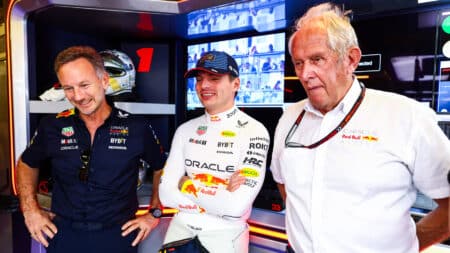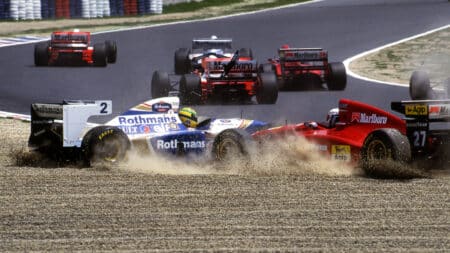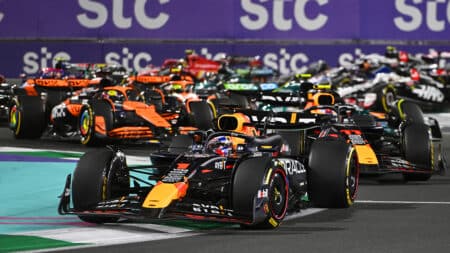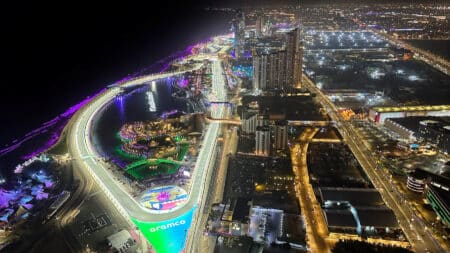
How real are Red Bull's concerns that Verstappen could leave early?
Helmut Marko caused a stir after the Bahrain GP with his worries that Max Verstappen could leave Red Bull early. But how real are those fears?
It was the kind of invitation you don’t receive too often, a chance to wander unchallenged into a contemporary Formula 1 pit and inspect the merchandise. Some teams have security goons by the door, but Marussia (né Virgin) – hewn from solid, no-nonsense racing stock – was never likely to be that way inclined.
It was the Thursday before the 2010 Bahrain Grand Prix and Virgin was one of three new teams poised to make its debut. Head of communications Tracy Novak spotted me meandering aimlessly through the vast, soulless paddock and asked if I’d like to see how things were progressing with the new car. I wandered in expecting to see a couple of shiny, fresh chassis on axle stands, primed for action, but was greeted by glorious chaos, with bits lying all around and everybody mucking in. Team principal John Booth – butcher, Formula Ford champion and winner of multiple junior titles as a team owner – was getting his hands dirty with some component or other, while 1999 British F3 champion Marc Hynes (head of driver development) was filing bits of carbon to fit. It was a throwback to an age before F1’s corporate regimentation.

I watched for 10 minutes, exchanging the odd word while trying to keep out of the way, then left them to it. The following day, drivers Lucas di Grassi and Timo Glock were both able to take part in free practice, although the German lost a wheel during the afternoon – a consequence of finger trouble borne of fatigue.
The team would last almost five seasons, but recently entered administration and news of its formal closure was delivered earlier today. Throughout that time it has been a beacon of courtesy in the F1 paddock: no airs, no graces, just a bunch of committed racers doing their level best with the limited means at their disposal. Ask a straight question and you got a straight answer, a template for how all teams should be. Ask for a cuppa and you got one of those, too. Mugs of tea were part of Marussia’s essence.
Earlier this season, few in the F1 community begrudged the team its first points – scored by Jules Bianchi, in Monaco. And everybody shared its utter despair post-Suzuka, where the young Frenchman suffered grievous injuries that have left him fighting for life. Pending results in the next two races, his points might have been worth a significant payout… but only if the team had continued.

Early in 2010, I asked Glock why he’d gambled on a newcomer when he’d had an offer from an established team (Renault) on the table. After two years driving for Toyota, where the top-heavy management was ill suited to the rapid decision-making F1 demands, he fancied a return to basics. “As soon as I visited the factory,” he said, “it reminded me very much of my time with iSport [the team that had guided him to the GP2 title in 2007]. I met a tightly knit group of proper racers, and that really appealed.”
Says it all, really.
The wider world might not miss the red-and-black cars that spent almost all their time towards the back of the field, but the team’s human qualities leave a gaping void.

Helmut Marko caused a stir after the Bahrain GP with his worries that Max Verstappen could leave Red Bull early. But how real are those fears?

Ayrton Senna’s tragic final races in 1994, marked by controversy over illegal traction control and his relentless pursuit of excellence in a challenging car, remain a poignant chapter in F1 history, as Matt Bishop recalls

Full F1 schedule for the year, including the next F1 race of 2025: the Saudi Arabian Grand Prix, the whole calendar and circuit guides for the 24-race Formula 1 season

Round five of the 2025 Formula 1 season wraps up the first triple-header of the year in Saudi Arabia. There are the dates and start time for the Jeddah event, including all sessions